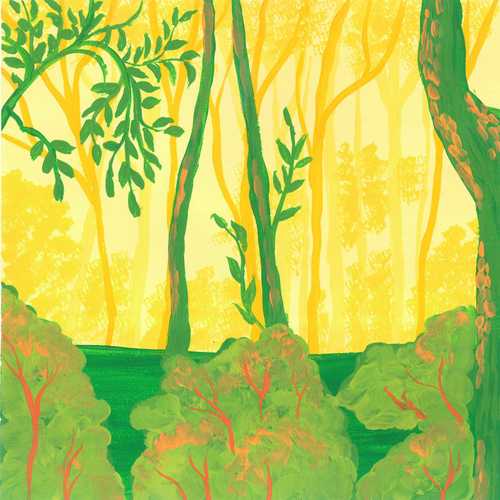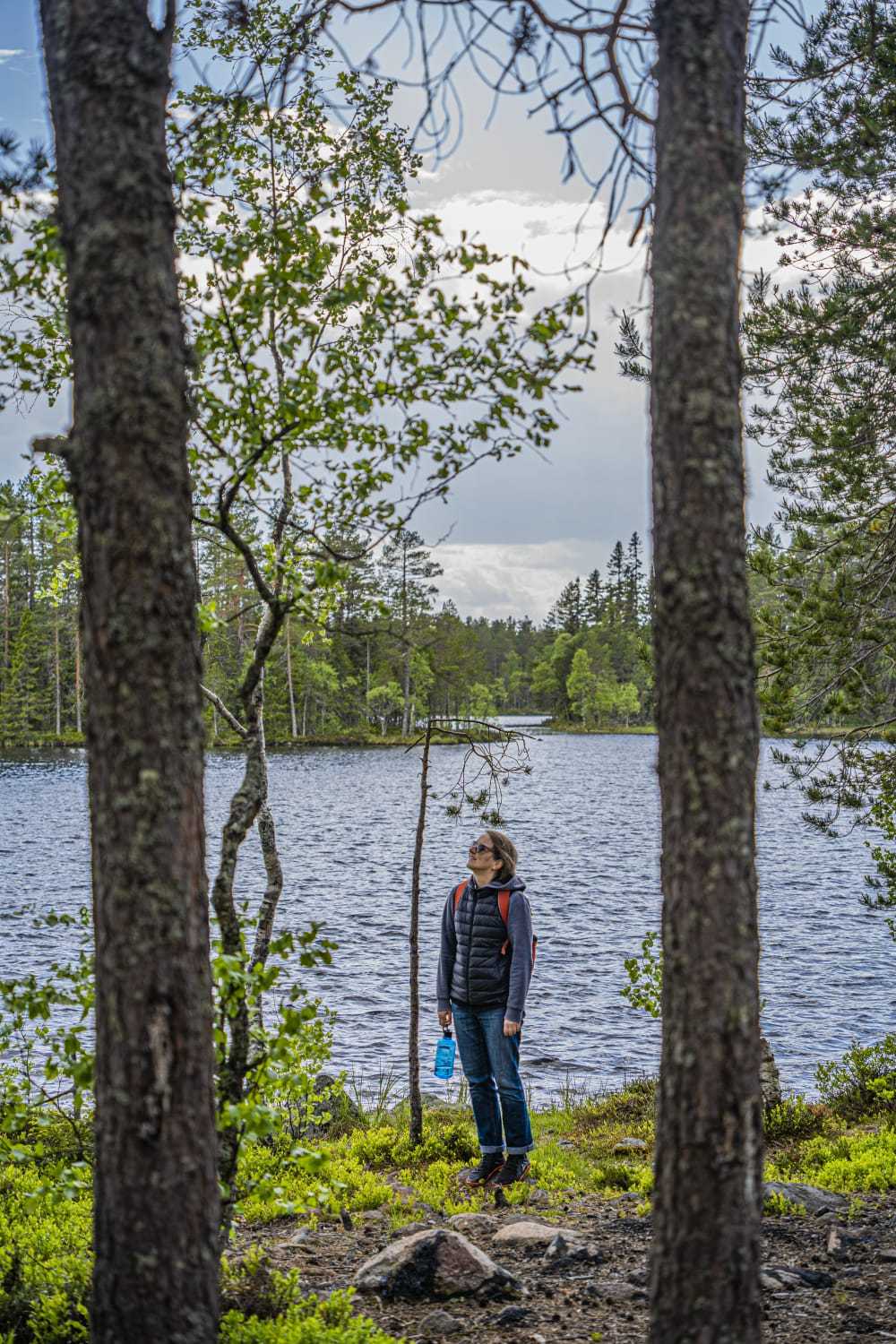
The Listening Book: awakening creativity and opening up the world around us
At its simplest, to listen is “to give attention to sound or action”. At its most complex, it’s a problem-solving skill – although the jury’s still out on this issue. Whichever way you look at it, listening “involves complex affective, cognitive and behavioral processes”; there’s nothing banal about this precious sense which many people take for granted.

We all create sound, too, but we’re not all musicians – at least not in the sense of someone who composes, conducts, or performs instrumental music. Are those people musicians because they have an enhanced ability to listen? Can we all become better listeners, and what does that mean? How can we listen… better?
Published in 1991, The Listening Book: Discovering Your Own Music is a great tool for those willing to discover (or rediscover) “the power of listening as an instrument of self-discovery and personal transformation”. The author, William Allaudin Mathieu, is also a composer, pianist, choir director, and music teacher: a rather skilled listener.
The book consists of short personal essays, diarized snippets of daily life, flashbacks, encouragements, tips on aspects of music-making, and playful exercises, all intended to help us appreciate the connection between sound, music, and everyday life.
Though Mathieu’s suggestions are not always straightforward, his musings and observations have the potential to awaken our imagination and creative powers as makers of sound (or noise?), or ‘just’ as skilled listeners.
Here are some takeaways, which have an element of whimsy – a first test of our ability to see the world in a less mundane light:
Listening intently with your eyes open
For the sake of your ears, you can learn to listen with your eyes open too, connecting the senses for a more holistic experience:
“When people are listening intently with their eyes open, a strange thing happens. Their eyes roll up a little bit, and a glaze comes over them as if the surface has congealed. I love that little roll-up. Oh, those Swami Eyes! It means that the hearing, just for a moment, has become hungrier than the vision.”
Listening into the distance = looking into the horizon
On a similar topic, did you know that “listening into the distance is like looking into the horizon”?
“When we gaze at the horizon, our vision goes beyond our eyes and sees forever. When we listen into the distance, our ears reach beyond the farthest sounds, and the infinite becomes sensible. We get a fix on our position in the boundless world. […] We need the big picture and the long radius. We need to check out the long-range coordinates.”
Listening to animals
In a world where wildlife is constantly being diminished by human activity, we are lucky to still be able to enjoy the sounds of wild animals – precious reminders of the other species we share this world with. However, in the urban environment, the animals we hear are primarily our own pets, or those of our neighbors. In rural areas, there are farm animals, whose ‘music’ can help us to appreciate a resonance with other beings, beyond the boundaries of words.
“You can become your cat when you listen deeply to her voice.[…] When you understand the language, you are rooster, pig, and goat. Part of you leaps to life for a moment’s appreciation of purr, yowl, crow, squeal, or bleat. That sound is the bridge that leads you out of your skin and out of your cage.”
Protect your ears
Knowing when to protect your ears is also a mighty skill – and not by covering them or using earplugs, but by knowing the difference between good and bad sounds. To questions about the ‘management’ of only letting inside what is good and useful, the answer may simply be “discrimination, and good judgment”.
Discrimination means knowing what is good for you and what is bad. Good judgment means knowing when to duck. […] You have to know when to say ‘come in’ and when to say ‘stay out’; that is basic to life. What is not obvious is how to do it consciously, deliberately, with your sense of hearing.
Hearing meditation: unlistening
Moving beyond good and bad sounds is essential in a world where, all too often, it is impossible to avoid the latter. And that’s where the practice of ‘unlistening’ becomes a type of hearing meditation:
Unlistening means clearing sounds from their associations, which are often unconscious. Make them conscious. If bird song means replenishment, know that. If the sound of traffic makes you shrivel inside, know that.
Yet identifying an association is a way of knowing what to “shoo away” when heading into “the world of sensual vibration”, as “the pitch and roll of thinking dulls the ear.” And the results of that sensorial journey can be delightful:
“When thinking calms down, even a little bit, sound wakes up. This sudden aliveness may have happened to you spontaneously in a moment of danger (no time to think) or in a trough of absent-mindedness. But you can intentionally stimulate its happening by being quiet (standing in line, sitting at your desk, lying awake) and drifting down through the cloud cover of mental associations onto the surface of the vibrational world.”
Preparing a sound space
‘Prepare’ may be a grand word for this minimalist undertaking, because, as the author puts it, just as an altar is unnecessary for prayer, so is a special place unnecessary to practice listening. Monks may have their own “sound space”, but for the rest of us – beginners, maybe, in the art of listening – a “trusted place”, a place that pleases you, makes a preferable “sound temple”:
… temples can make you feel holy, and it is useful to have a sound temple, a trusted place where you can let sound all the way in and listen all the way out.
“Maybe you won’t have to look far. Your sound space could be your bed, or a corner of your living room. Maybe you’ll have to adjust something for a few minutes, pull the plug of the refrigerator (don’t tell a soul, and be sure to replug). Or wait until the kids have piped down a bit. Or wait until the neighbor’s stereo is off. Maybe you’ll have to get the jump on the natives by waking up earlier. Maybe you’ll even have to travel some. But sitting quietly in a place where ambient sounds don’t trigger negative responses is worth the effort of getting there. If you look for such a spot you will no doubt find it. People have the habit of going to the country, of seeking out wilderness. But you can find a little wilderness of your own wherever you are.”
Check out the book for more on listening, discovering your own music, and practical music advice.
Earth.fm is a completely free streaming service of 1000+ nature sounds from around the world, offering natural soundscapes and guided meditations for people who wish to listen to nature, relax, and become more connected. Launched in 2022, Earth.fm is a non-profit and a 1% for the Planet Environmental Partner.
Check out our recordings of nature ambience from sound recordists and artists spanning the globe, our thematic playlists of immersive soundscapes and our Wind Is the Original Radio podcast.
You can join the Earth.fm family by signing up for our newsletter of weekly inspiration for your precious ears, or become a member to enjoy the extra Earth.fm features and goodies and support us on our mission.
Subscription fees contribute to growing our library of authentic nature sounds, research into topics like noise pollution and the connection between nature and mental wellbeing, as well as funding grants that support emerging nature sound recordists from underprivileged communities.

